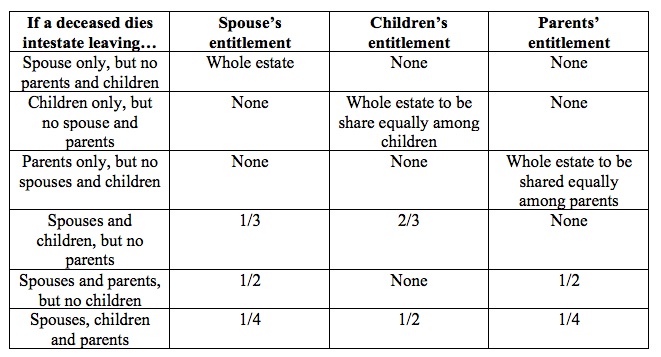IS IT NECESSARY TO HAVE A WILL?
IS IT NECESSARY TO HAVE A WILL?
In short, the answer is yes – it is necessary to have a Will.
A Will is the most critical but often neglected part of estate planning. Numerous long-term benefits can be gained from preparing a Will, but many of us put it off to the point that it may become a future problem to our dependants.
In Malaysia, all assets upon passing away will be frozen until the Court has granted the letters of administration (where there is no Will) or probate (where there is a valid Will). Therefore, one of the main objectives of estate planning is to unfreeze the frozen assets as soon as possible to minimize and avoid any financial hardships that may occur to our dependants.
Importance of leaving a Will
Wills are generally written to express certain wishes which include a non-limited list of:
- The right to choose the distribution of assets to each beneficiary;
- The right to appoint a trustee and executor to administer the estate;
- The right to appoint a guardian to protect the interests of your minor children;
- The right to appoint a particular person to take over your family business;
- To set up a testamentary trust for heirs with special needs, children’s education, elderly parents’ living expenses or the charities of your choice; and
- To give directions as to your funeral arrangements.
Overall, the presence of a Will could assist in expediting the distribution process, further reducing the costs of administering the estate as well as minimizing family conflict.
What happens if you did not leave a Will at the time of your death?
- Possible family disputes
In a situation where you do not leave any Will behind, you are said to have died intestate which means that you are left with no instructions as to how your assets are to be distributed. To unfreeze the estate, the High Court must grant a letter of administration. According to Section 30 of the Probate and Administration Act 1959, any person who is interested in the estate of the deceased is entitled to apply to be the administrator. However, such occurrences may lead to disputes among family members having an interest in your assets.
Further, you may also put your surviving family members in a situation that requires spending additional time, money and energy to settle your affairs.
2. Distribution of assets will strictly abide to the Distribution Act 1958
Further, in the absence of a Will, your assets will be distributed strictly according to the prescribed Section 6(1) of the Distribution Act 1958 unless you are a Muslim in West Malaysia and Sarawak or is a native in Sarawak. If you are domiciled in the state of Sabah, the Intestate Succession Ordinance 1960 will apply. However, such strict distribution may not be in line with your wishes.
The distribution of the estate of an intestate is shown in the following table:


3. Lengthy distribution process
Though the Act will be of assistance to the beneficiaries, it may also take quite some time for the assets to be distributed. This typically requires an administration bond and the appointment of two sureties to guarantee the proper administration of the estate, as well as further court orders to effect the transfer of real property.
4. Losing the right to nominate a guardian for your minor children
Further, in a situation that involves the unfortunate passing of both you and your spouse, you will lose the right to nominate a guardian of your choice. Instead, Court will appoint an administrator who can act as a guardian. Alternatively, the Court may also appoint a guardian under Section 8 of the Guardianship of Infants Act 1961 to protect your children’s interests.
To conclude, it is of utmost importance for you to have a will to safeguard the interest of your loved ones in the long run. It is always advisable to first consult a professional who is well versed in the matter of will preparation or a company offering such services, as this is to ensure that your will is in compliance with all the necessary statutory requirements.


















